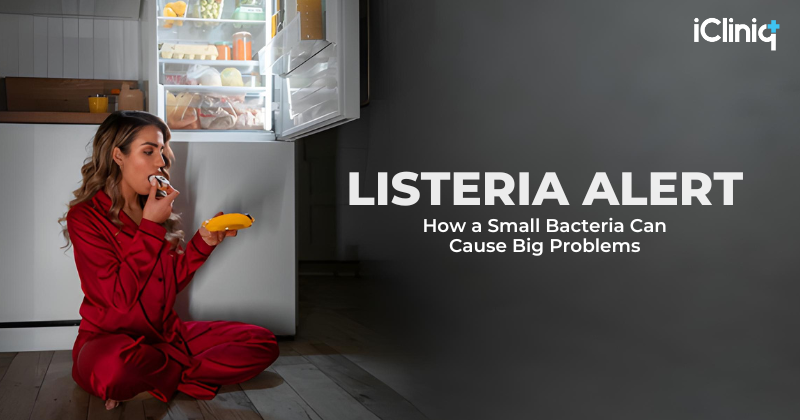Listeria Alert – How a Small Bacteria Can Cause Big Problems

Listeria is not just another foodborne bug. It is a harmful bacteria found in refrigerated foods. While most healthy people might not fall gravely ill from it. However, certain individuals—like pregnant women, older adults, and people with weakened immune systems can face a life-threatening infection called listeriosis. Unlike many bacteria, Listeria can grow even in cold environments. That’s right, it thrives in your fridge, not just your leftovers.
Where Is It Found?
It’s not the dramatic food recall that’s the main problem; it’s the daily exposure that we overlook. Listeria can be lurking in:
- Deli meats and cold cuts.
- Unpasteurized milk and soft cheeses (like feta).
- Packaged salads and pre-cut fruits.
- Smoked seafood.
- Ready-to-eat meals, especially those not reheated properly.
How Can It Affect You?
Listeria infection often starts with mild flu-like symptoms, but it can quickly become serious. In vulnerable people, like older adults, pregnant women, or those with weakened immunity, it may even lead to life-threatening complications.
- Fever and muscle aches.
- Fatigue.
- Nausea or diarrhea.
- Confusion or loss of balance (in severe cases).
- Miscarriage or stillbirth (if pregnant).
Who’s Most at Risk?
While anyone can get sick, certain groups are far more vulnerable:
- Pregnant Women – Not only are they more likely to contract the illness, but the consequences for the unborn child can be devastating.
- Older Adults – Our immune system weakens with age, making infections harder to fight.
- Immunocompromised Individuals – People undergoing chemotherapy, organ transplant recipients, or those with chronic illnesses like diabetes or HIV.
Prevention: The Power Is in Your Hands
- Keep your refrigerator at 40°F (4°C) or colder. Don’t leave leftovers out for too long. Eat them within a few days.
- When reheating food, make sure it’s hot all the way through, especially if someone in your home has a weaker immune system.
- Avoid raw milk and soft cheeses unless the packaging clearly says they’ve been pasteurized.
By staying informed and practicing safe food habits, we can protect ourselves and those we care about. Staying vigilant is especially crucial for pregnant women, older adults, and people with weakened immune systems.




